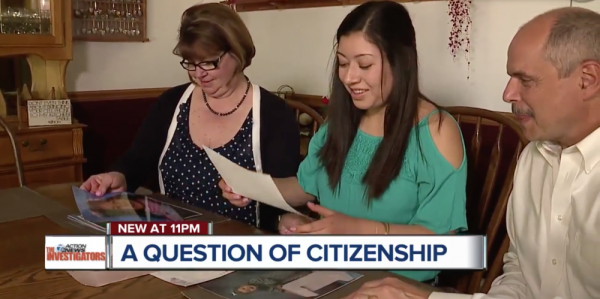Receiving a driver’s license is a rite of passage for most teenagers, but for Jenna Sipple, it was not the celebration day she or her parents had expected. At her appointment to receive her license, she gave them her paperwork and was told that she was not an official U.S. Citizen. Of the experience, Jenna said, “[The DMV employee] said I need proof of citizenship, and my dad said, ‘Well, here is her social security card number. Here is her passport.’ The lady said, ‘I can’t take any of this. … This card you have is your green card, not proof of citizenship.'”
In late 2000, Jenna was adopted at seven weeks old from Guatemala, and her family presumed she was a U.S. Citizen because of the Child Citizenship Act. WXYZ of Detroit reported, “But the law didn’t actually take effect until February 27th of the next year [2001]–leaving potentially thousands of parents, including Jenna’s, unaware their children weren’t covered and lacked the citizenship requirements needed.”
Jenna needed to be naturalized, and to do that required the help of politicians and attorneys. The family had a celebration service at a local USCIS office when Jenna was able to become an official citizen of the United States.
Jenna’s parents wanted to make others aware of this, as there could be many others affected by the gap of time in the act. According to immigration officials in Washington, the problem stems from incomplete or missed paperwork that should have been done when the child was born, and there is no way of knowing how many people could have the same problem. Those people will have to come forward to be found.
The Sipples hope that through sharing their experience, they can help other adoptive parents and their children to avoid similar situations.
For the original article, click here.

